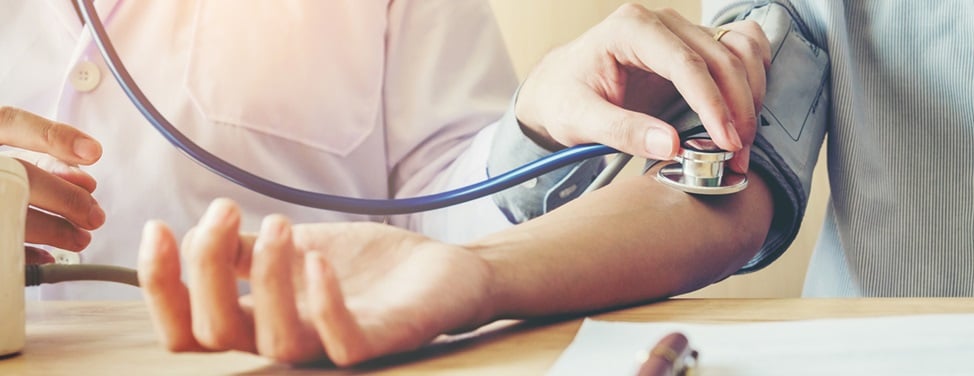
FAQ: Heart Disease
Dr. William Grossman, Director of the Center for Prevention of Heart and Vascular Disease at UCSF, answers some frequently asked questions about heart disease.
Q: Many people take two to four — or more — Advil or other ibuprofen daily for joint issues, such as arthritis. Labeling seems to indicate a possible heart risk. How serious is this risk?
A: Ibuprofen, such as Advil, Motrin or Ibuprofen, can cause marked worsening of existing hypertension (high blood pressure) or development of new high blood pressure. It can also cause damage to the kidneys (nephrotoxicity), worsening of heart failure, and even heart attack or stroke. Outside of the cardiovascular system, its major risk is to the stomach, where it can cause ulceration and gastrointestinal bleeding.
Ibuprofen is a member of the class of drugs called NSAIDs, which includes ibuprofen, naproxen (Naprosyn, Aleve, Anaprox), sulindac (Clinoril), diclofenac (Voltaren), piroxicam (Feldene), indomethacin (Indocin), meloxican (Mobic) and celecoxib (Celebrex).
All of these drugs have a black box warning from the FDA, which reads: "Cardiovascular Risk: May increase risk of serious and potentially fatal cardiovascular thrombotic events, MI and stroke. Risk may increase with duration of use. Increased risk if existing cardiovascular disease or risk factors."
The bottom line is that for short-term occasional use, these drugs are probably safe for most of us, but personally I rarely use them. If I have patients who really need them, I make sure that they check their blood pressure regularly, take their daily baby aspirin and try to get off them as soon as possible.
Heart-friendly medicines for joint issues or arthritis that I do use personally and recommend are:
- Plain regular aspirin — Two regular aspirin every four to six hours
- Acetaminophen (Tylenol) — Two regular or extra-strength every four to six hours
- Vicodin 5/500 — One to two tablets every four to six hours
None of these have black box warnings from the FDA. Finally, there are some folks for whom NSAIDs are not harmful and are absolutely necessary for improved quality of life. So, check with your internist, cardiologist or both as to what is right for you.
Q: There are mixed messages about whether or not eggs are okay to eat if a person is on a watchful cardio diet. Is it okay to eat eggs, and if so, how many per week?
A: Eggs are an excellent source of protein and are available in a cholesterol-free form (Egg Beater Pour Spout and similar products at Safeway). These cholesterol-free eggs can be eaten without any limitations. However, for regular or "real" eggs, some limitations may be desirable.
If you have elevated LDL cholesterol (the "bad" cholesterol) and other risk factors for heart attack or stroke, such as high blood pressure, diabetes, or family history of heart attack or stroke, you should probably limit eggs to no more that two per week. However, if you are on a statin such as simvastatin (Zocor), atorvastatin (Lipitor) or rosuvastatin (Crestor), and your LDL is now low, you can safely eat eggs more often, perhaps daily.
I suggest doing a "before and after" test: Check your LDL cholesterol on your best-effort diet low in eggs, then eat as many eggs as you desire and recheck your LDL cholesterol. For many of my patients, the statin completely overpowers the effects of the eggs (or cheese for that matter).
As an item of full disclosure, I have an egg-cheese omelet most Sundays and a slice of extra-sharp cheddar cheese as part of my regular, daily breakfast, which also includes a bowl of strawberries, bananas, raisins and almonds or walnuts.
Q: According to recent articles, it seems that salt is not the "no-no" it once was. Is it true that, unless you have high blood pressure, the intake of salt is not bad for you?
A: A very good question, and there is definitely some truth to the statement that salt is not bad for everyone. In fact there are some conditions, such as Addison’s disease, cortisone deficiency and chronic low blood pressure, where salt is part of the therapy. And there are many people who tolerate salt well and have no need to restrict it. Unfortunately, many of us — including yours truly — have a problem with large quantities of salt.
When I was in my 40s, I developed high blood pressure (160/100 mmHg). I saw an internist who put me on medication that brought my blood pressure right down. In those days it was fashionable to conduct a urine test on all newly diagnosed hypertensives. My test revealed a very high sodium content. The internist told me to stop adding salt at the table and to cut down on salty foods, which I did. Over the next year, during which I also lost 20 pounds, my blood pressure came down and I was able to get off the antihypertensive medication. That was 20 years ago, and my blood pressure has remained 120/80 mmHg or less ever since.
Other conditions where salt can be dangerous include congestive heart failure, edema (fluid retention) and kidney disease. As in most things, moderation is probably the wisest course.
Q: I am a 65-year-old woman taking medication prescribed by my internist for high blood pressure and high cholesterol. Would it be advisable to get a heart screening test, evaluation and treatment recommendation from a cardiologist? Should a heart screening be part of a routine physical, and if so, how frequently and what tests should be given?”
A: This question is actually several good questions, all of which are difficult to answer.
First, does everyone with high blood pressure and high cholesterol need to see a cardiologist? My answer is no — if he or she has a good internist. The problem is that many internists are very busy and may not be expert in the latest treatment of these conditions.
If your blood pressure has come down to 120 mmHg systolic (the top number) or less, you and your internist are doing a great job. If your LDL cholesterol has come down to 70 mg percent or less, you and your internist are to be congratulated, and a cardiologist is not likely to add anything. Asking your internist for a one-time consultation with a cardiologist might not be a bad idea if you have doubts about the thoroughness of his or her cardiologic evaluation.
Regarding heart screening, there are many different types of heart screening tests. Everyone should have complete blood screening tests — including full cholesterol profile, high-sensitivity C-reactive protein, kidney and diabetes testing — and an EKG (electrocardiogram).
I do not recommend routine treadmill or nuclear stress tests, echocardiograms or CT scans on everyone; I order them based on issues in each individual case.
The echocardiogram is particularly helpful if there is a heart murmur, shortness of breath, fluid retention, or signs of heart failure. The treadmill and nuclear stress tests are helpful if there is chest pain or pressure, or an abnormal EKG. The CT scans expose you to a lot of radiation — more than 100 times that of a standard chest X-ray —, and I reserve those for cases where I am really concerned about a particular question, such as pulmonary embolism or aortic aneurysm.
Finally, regarding the routine heart screening calcium score CT, I rarely order this test and don’t find it useful. There are too many false positives — i.e., the test indicates the presence of serious disease, but further, more specific testing shows that none is present.
UCSF Health medical specialists have reviewed this information. It is for educational purposes only and is not intended to replace the advice of your doctor or other health care provider. We encourage you to discuss any questions or concerns you may have with your provider.















